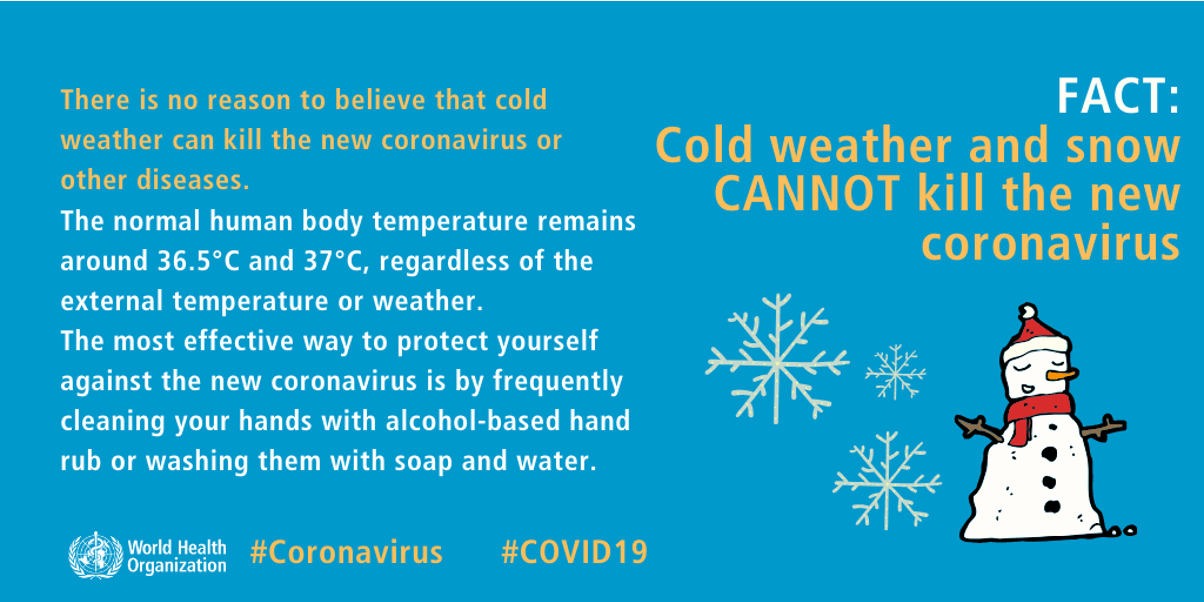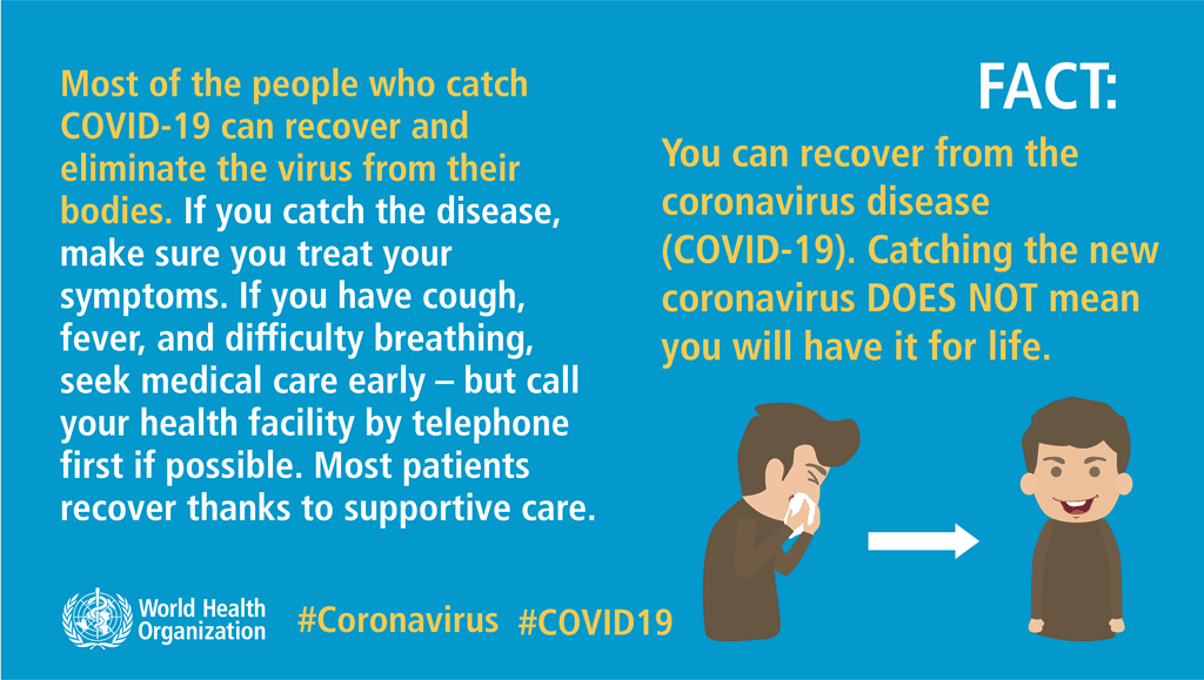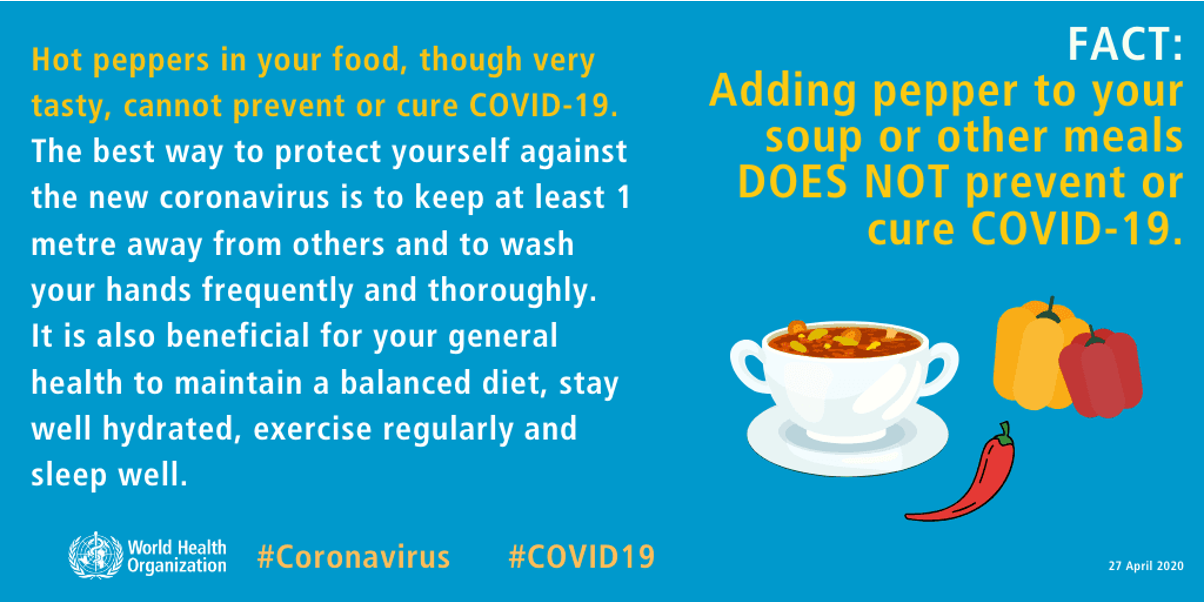THURSDAY, 14 MAY 2020
In 2018, Dictionary.com declared their Word of the Year to be misinformation, which they define as “false information that is spread, regardless of whether there is intent to mislead” [1]. When discussing their decision to choose this word above others, the organisation referred to the recent explosion of misinformation that has been particularly prevalent on social media, while taking care to point out the rise of health-related misinformation in particular.Though the COVID-19 pandemic had not hit yet, it is certainly a key global issue now and one that is highly prone to the spread of damaging misinformation [2] [3] . Fortunately, however, the similarity between COVID-19 misinformation and other types of misinformation means that we can learn from past research on the subject, and identify ways to fight such misinformation more effectively.
Here I focus specifically on a phenomenon known as the “familiarity backfire effect”, which plays an important role when it comes to debunking misinformation. Simply put, the familiarity backfire effect is a psychological phenomenon that leads people to remember misinformation better, and crucially, to remember it as being true, after exposure to certain types of debunking attempts, primarily as a result of increased exposure to the original misinformation [4] [5] [6] [7].
For example, one study on the topic found that when people—especially older adults—are shown health-related claims and are told that these claims are false, they often end up remembering them as being true after a few days pass [6]. Similarly, a related study found that when people—once again older adults in particular—are shown negatively worded statements, such as “You should not take aspirin if you have an attack of hives”, they often end up misremembering them, and endorsing their positive counterparts instead [7].
To avoid this phenomenon, the main recommendation is to focus on the corrective information during debunking attempts, rather than on the misinformation itself. For example, telling people “You shouldn’t stop taking your antibiotics when you feel better” can often lead them to remember only the part which says “You should stop taking your antibiotics when you feel better” [7]. Accordingly, in such cases, a better statement to use would be “Keep taking your antibiotics even if you feel better”.
The importance of this becomes clear when examining the “Myth buster” graphics published by the World Health Organisation (WHO) in their battle against COVID-19 misinformation [2].
Consider the following graphic about the coronavirus and cold weather:

[Image from “Coronavirus disease (COVID-19) advice for the public: Myth busters” [7]]
Because of the manner in which it is phrased, people who see this graphic might end up forgetting the negation, and instead remember only the original myth, which is that cold weather can kill the virus. In this case, a better phrasing would have likely been “The new coronavirus can survive even in cold weather”.
Another example of a problematic debunking attempt is the following:

[Image from “Coronavirus disease (COVID-19) advice for the public: Myth busters” [7]]
This statement too is problematic, because even though its opening sentence focuses only on correct information (“You can recover from the coronavirus disease”), its second sentence focuses on the myth that it’s meant to debunk (“Catching the new coronavirus DOES NOT mean you will have it for life”). As such, people who see the graphic could end up forgetting the negation, and remembering only the original myth instead. Accordingly, this statement would have likely been better phrased if the second, negative part was removed and only the original correct information was kept instead.
However, it’s important to note that in some cases, avoiding this kind of negation might not be entirely feasible. For example, consider the case below:

[Image from “Coronavirus disease (COVID-19) advice for the public: Myth busters” [7]]
Here, it is more difficult to debunk the myth that hot peppers can prevent COVID-19 without using negation or repeating the myth in some way. There are certain ways to phrase this, such as “You can catch COVID-19 even if you eat hot peppers” or “COVID-19 can survive in your body even if you eat hot peppers”, but these phrasings feel somewhat contrived, and may therefore not be effective. Nevertheless, even in such cases, there are still ways to phrase the debunking attempt in a way that reduces the likelihood of the familiarity backfire effect taking place.
For example, it is possible to emphasise the negation visually, as the WHO did, by CAPITALISING it. In addition, it is possible to further emphasise the negation in terms of phrasing, by adding a phrase that can only appear with a negation, as in the case of “Hot peppers DO NOT AT ALL prevent or cure COVID-19”. Furthermore, it is also possible to make it clearer, from a visual perspective, that they’re discussing a myth, by removing the “FACT” headline which precedes it, and covering the pictures of peppers with a visual hint that they’re not helpful, such as a big red “X”.
Finally, it is important to note that these recommendations are based on general prior research on the topic rather than on COVID-19 myth debunking attempts in particular. As such, it is necessary to remember that while these recommendations are likely to be beneficial, there is some uncertainty involved with regard to their efficacy in this case, and further research on the topic is needed, especially given the high stakes involved.
From an individual perspective, it is important to keep in mind the familiarity backfire effect, both when it comes to how you view debunking attempts of COVID-19 misinformation and in your own debunking attempts. Doing so will help you be more resilient to such misinformation, and will help you prevent others from falling for misinformation too.
Itamar Shatz is a linguistics PhD student, with a strong interest in science communication. You can read more of his work on his website, https://effectiviology.com/.
